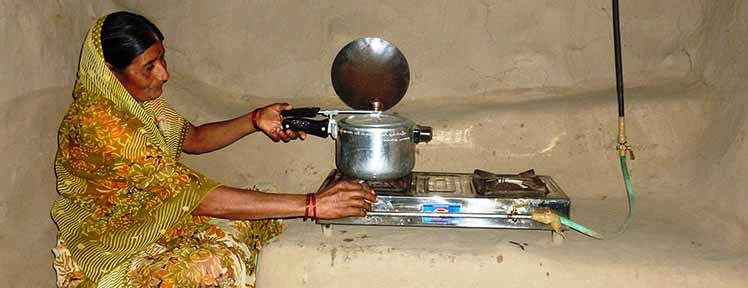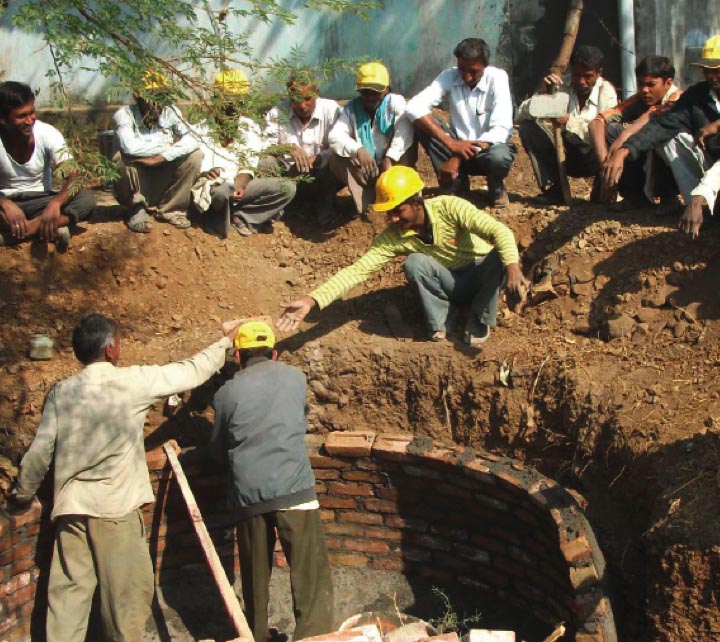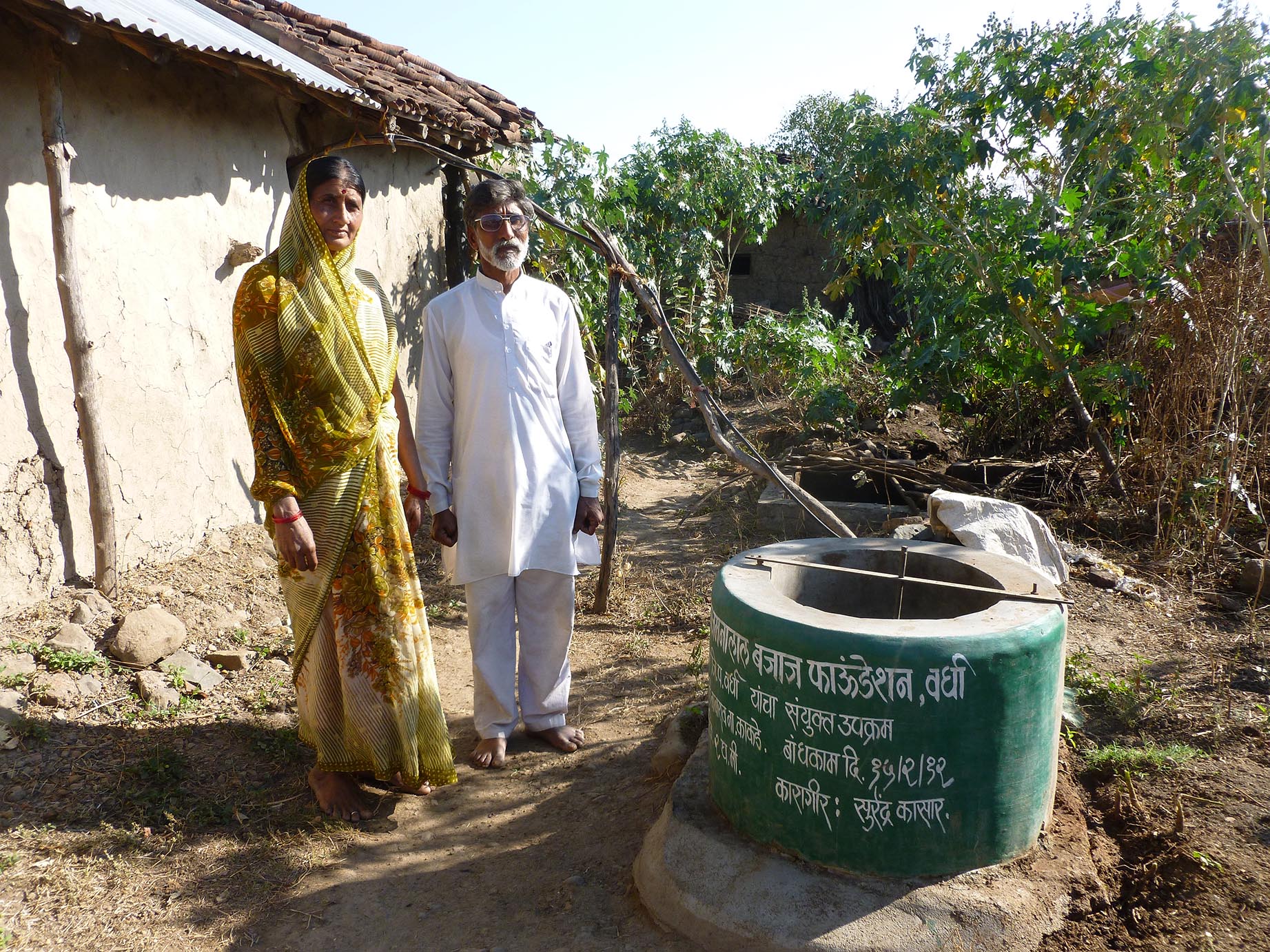
Alternative Energy
Biogas systems convert cow manure into clean-burning cooking fuel. The manure from four cows produces enough fuel to satisfy the needs of a family. The Bajaj Foundation has constructed over 600 biogas units since 2009, transforming the daily lives of hundreds of families and contributing to the global fight against greenhouse gases.
The Problem
Throughout the developing world, women walk miles every day to gather firewood. As nearby forests are depleted, women are forced to walk farther and farther or to buy expensive cooking fuel.
Burning wood for fuel also forces women to inhale dangerous amounts of smoke. Standard wood-burning stoves produce the smoke equivalent to two packs of cigarettes every day. In 2002, the World Health Organization (WHO) listed smoke from indoor wood stoves among the top ten greatest risks to human health worldwide.
Burning wood also pollutes the atmosphere, releasing large amounts of carbon dioxide that contributes to global warming. Meanwhile, another source of fuel, cow dung, lies exposed and unused, leaking more greenhouse gases into the atmosphere.
Solutions
By capturing and using the gas produced by cow manure, biogas systems free women from the need to gather firewood, eliminate the harmful smoke associated with cooking, and help reduce greenhouse gases.
The Bajaj Foundation strives to make biogas units affordable for as many families as possible. A single biogas unit costs 22,000 rupees (approximately $400). Beneficiaries receive a subsidy of 8,000 rupees ($148) from the local government as well as an additional subsidy of 8,000 rupees ($148) from the Bajaj Foundation. Beneficiaries contribute the remaining 6,000 rupees ($111) that is required to construct the unit. Importantly, the beneficiary can contribute up to 4,000 rupees ($74) of their share by providing manual labor during construction.

How You Can Help
The Bajaj Foundation plans to scale-up their biogas program to provide this life-changing technology for thousands of families. Challenges include the cost of construction, lack of awareness among villagers, and the need for a particular family to own at least four cows to supply the necessary amount of cow manure.
